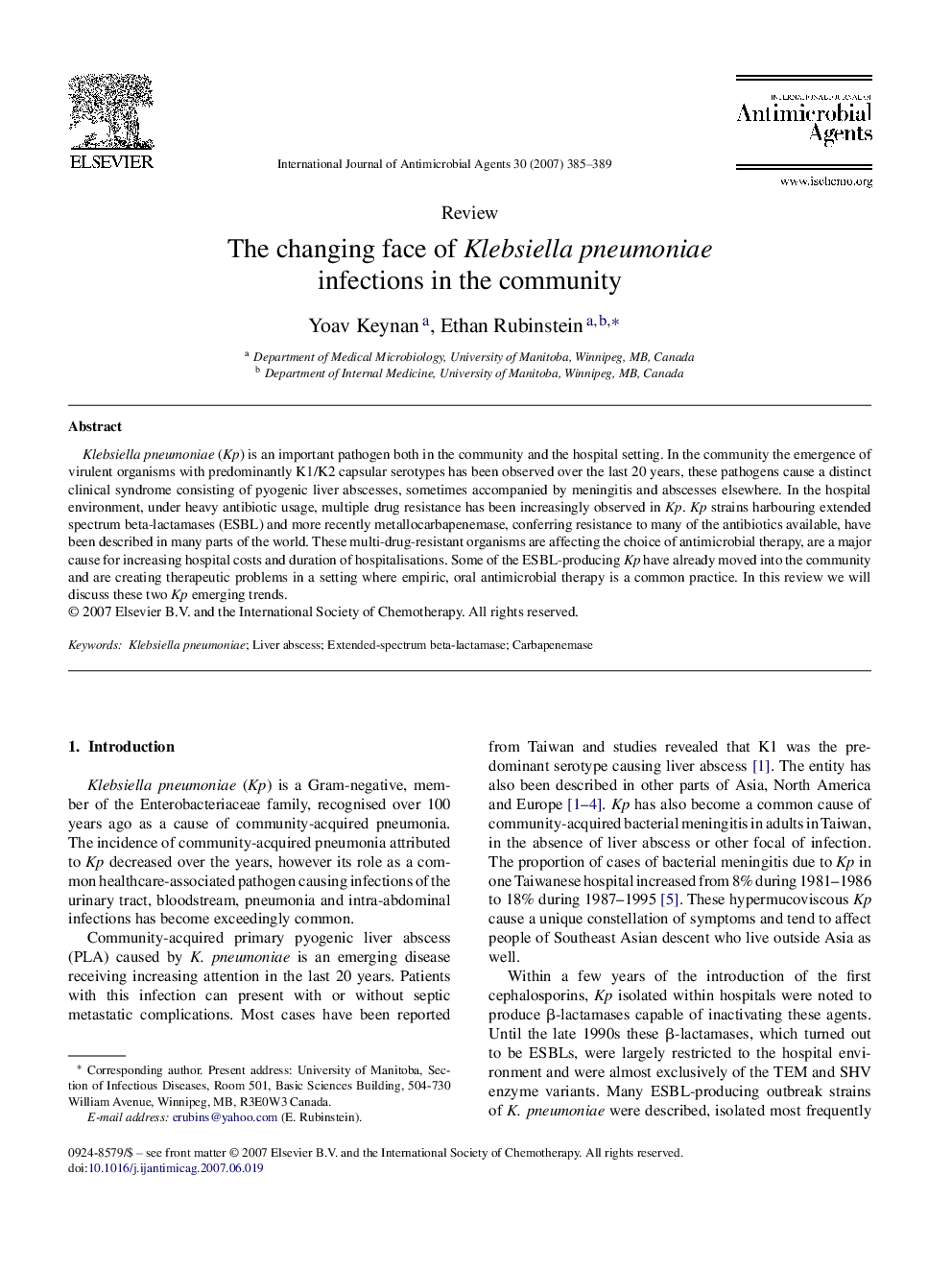| Article ID | Journal | Published Year | Pages | File Type |
|---|---|---|---|---|
| 3360784 | International Journal of Antimicrobial Agents | 2007 | 5 Pages |
Klebsiella pneumoniae (Kp) is an important pathogen both in the community and the hospital setting. In the community the emergence of virulent organisms with predominantly K1/K2 capsular serotypes has been observed over the last 20 years, these pathogens cause a distinct clinical syndrome consisting of pyogenic liver abscesses, sometimes accompanied by meningitis and abscesses elsewhere. In the hospital environment, under heavy antibiotic usage, multiple drug resistance has been increasingly observed in Kp. Kp strains harbouring extended spectrum beta-lactamases (ESBL) and more recently metallocarbapenemase, conferring resistance to many of the antibiotics available, have been described in many parts of the world. These multi-drug-resistant organisms are affecting the choice of antimicrobial therapy, are a major cause for increasing hospital costs and duration of hospitalisations. Some of the ESBL-producing Kp have already moved into the community and are creating therapeutic problems in a setting where empiric, oral antimicrobial therapy is a common practice. In this review we will discuss these two Kp emerging trends.
